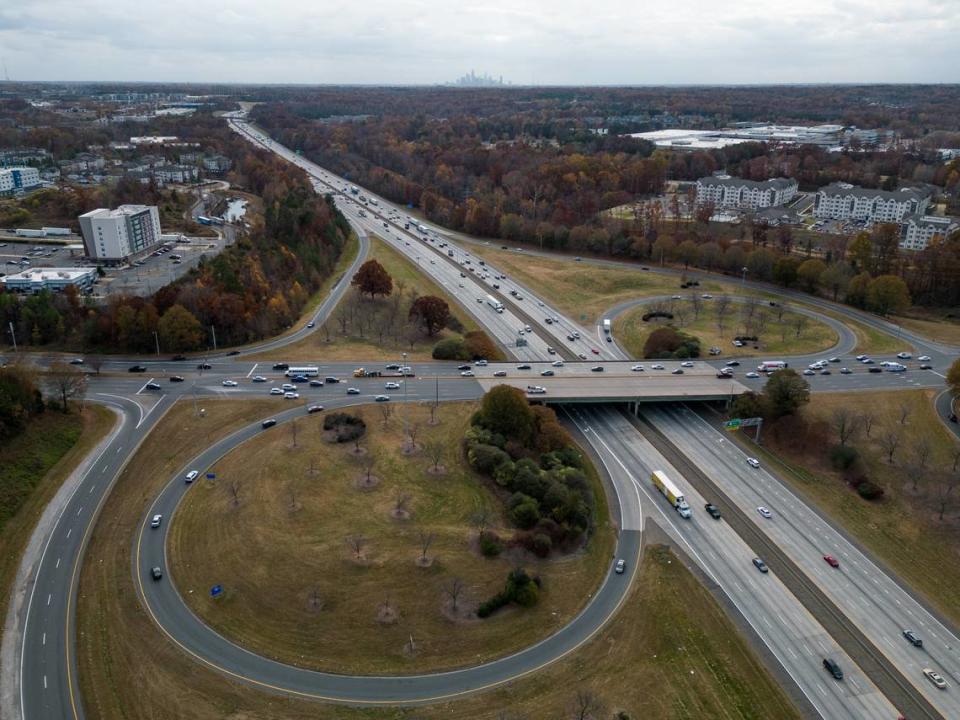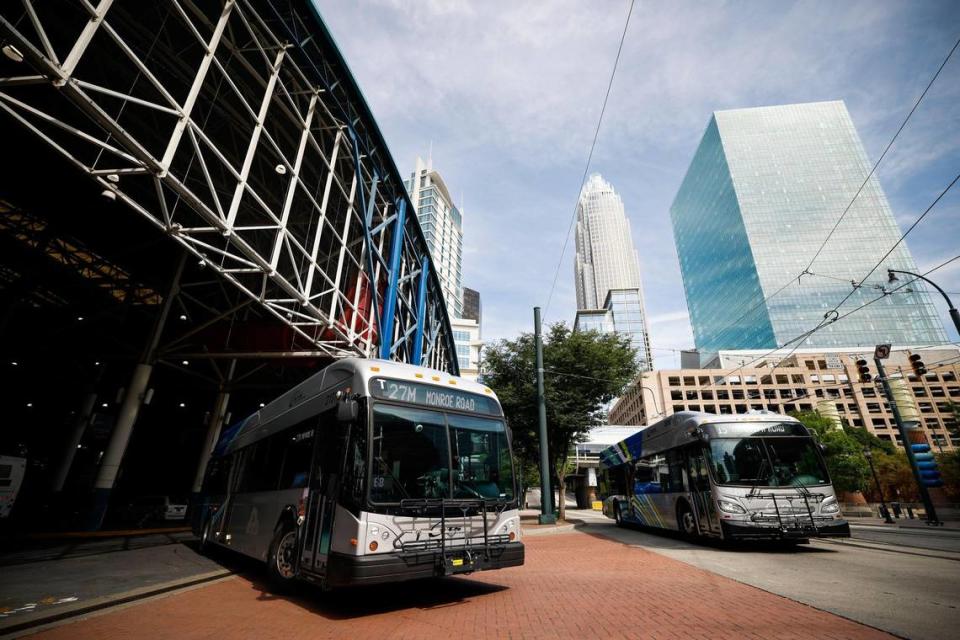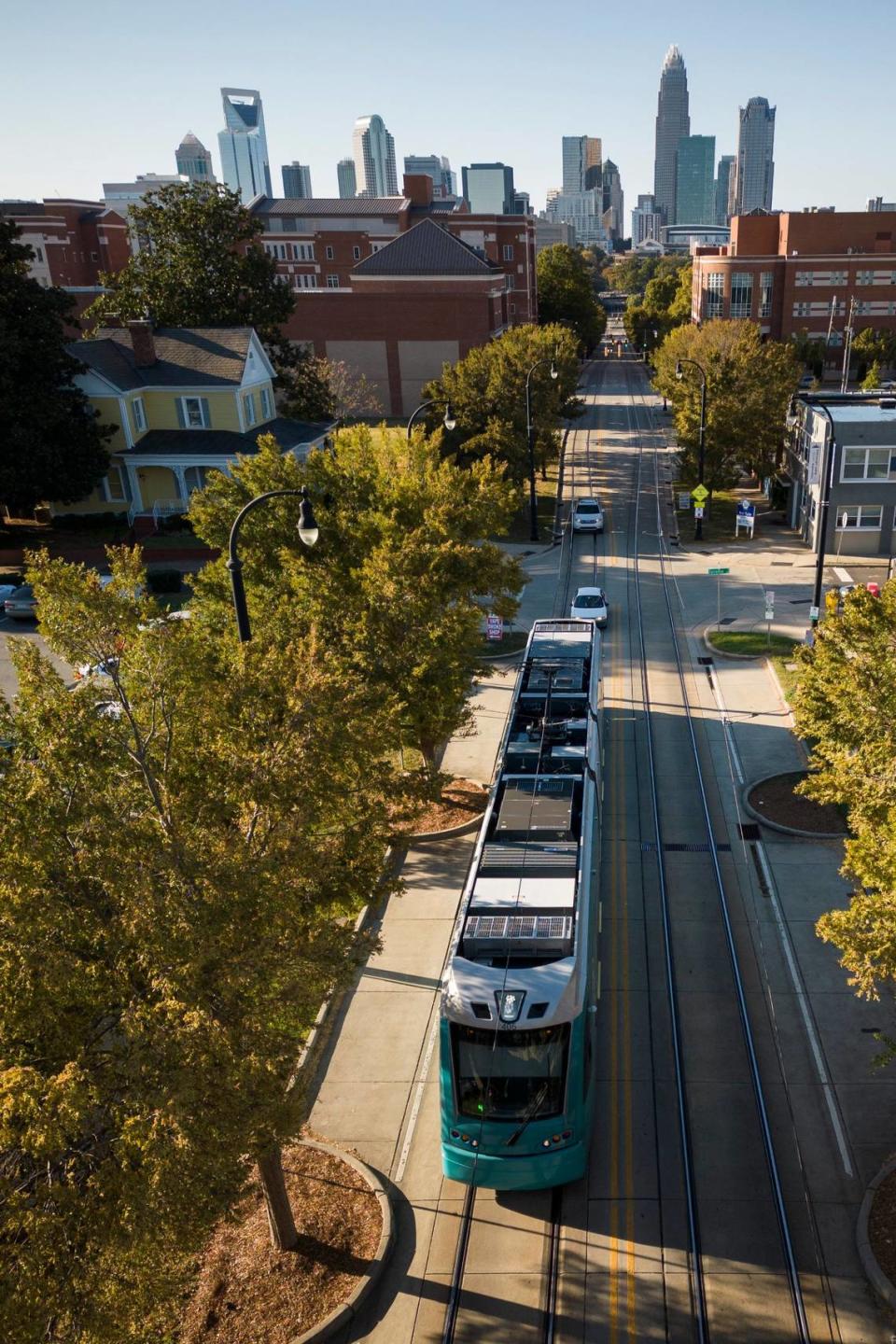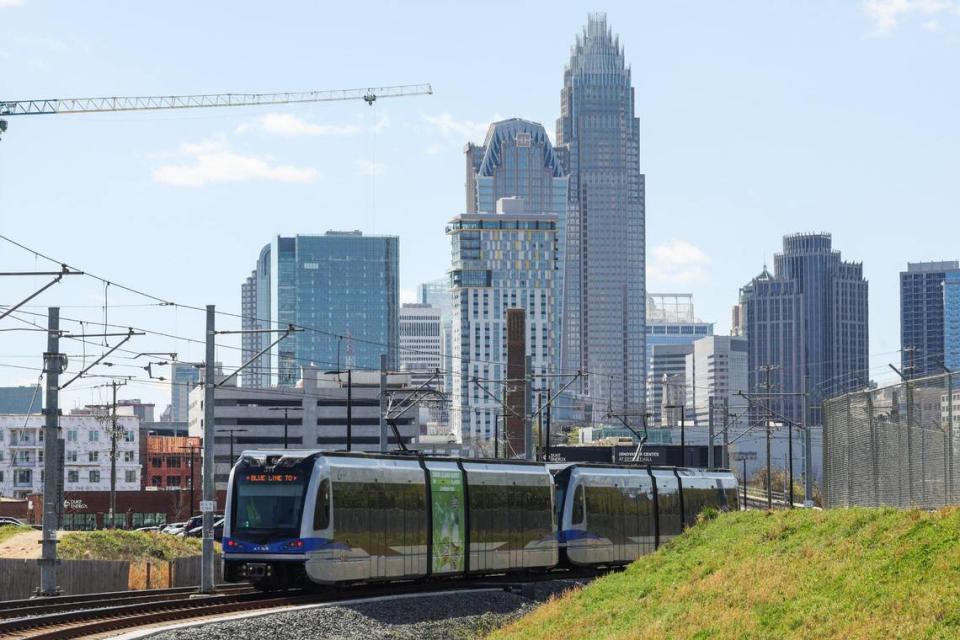With Charlotte stalled on transit plans, one council member offers new idea for old tax
Charlotte’s had little to no success finding new money to launch its public transit plans, but council members started a conversation Monday about a different way to pay.
During an update on the city’s multi-billion dollar mobility plan during a Transportation, Planning and Development Council Committee meeting, council member Renee Johnson floated the idea of using dollars from the city’s hospitality fund, which typically go toward projects like stadium renovations, to help pay for transportation needs.
The city has struggled for years to find a way to fund a transportation approach that would expand public transit, add bike lanes and more amid pushback from the state legislature over a potential sales tax increase. Charlotte needs the General Assembly’s OK to get a tax increase on the ballot, but Republican leaders in Raleigh have called Charlotte’s plan impractical and said it needed to be more focused on road capacity.
In offering her solution Monday, Johnson said, “We have resources in another pot.”

Johnson said she got the idea from Asheville, which puts some tourism funds into infrastructure needs. Asheville had to work with the legislature to amend state law to make that happen, and Charlotte would have to do the same.
Some fellow council members, including committee chairman Ed Driggs, said they’d be open to discussing the idea further.
“It’s a conversation worth having,” the District 7 Republican said.
But with many projects paid for by the hospitality fund already on the table — including potential renovations to Bank of America Stadium — not everyone on the committee was receptive to the idea.
“Asheville ain’t Charlotte,” council member Malcolm Graham said of Johnson’s pitch.
Could Charlotte use hospitality funds?

Charlotte’s hospitality fund — revenue from hotel occupancy, rental car and prepared food and beverage taxes — can pay only for projects that fall within three buckets:
Convention Center, which includes convention center facilities, marketing, amateur sports facilities and stadiums with more than 60,000 seats.
Tourism, which includes marketing for programs and events that draw visitors and construction as well as maintenance of convention centers, civic centers, auditoriums and museums
The NASCAR Hall of Fame, which includes construction and maintenance of the Hall of Fame, the Crown Ballroom and associated parking facilities.
State legislators extended Mecklenburg County’s 1% meals tax last session, which was set to sunset in 2031 and will now continue until 2060. But the legislature did not extend the county’s 2% hotel occupancy tax, set to expire in 2038.
In fiscal year 2022, the two taxes brought in a combined $58.2 million for Mecklenburg, according to data from the local tourism alliance. If 2022 numbers persist, the food tax could generate $340.8 million before it was scheduled to sunset in 2031, and the hotel occupancy tax could generate $234 million before it expires in 2038.
Johnson pointed to Asheville’s example as a case of a municipality successfully working with the legislature to amend the law. House Bill 1057, passed in 2021, allowed Buncombe County’s Tourism Development Authority to create a fund that pays for, among other things, “expansion of necessary infrastructure.”
“We know that we have money in our tourism fund,” Johnson said.

Driggs said he supports discussing the idea, but it would be critical to get the business community involved in order to have any chance of success locally and in Raleigh.
“We need to be very mindful of the fact that the hospitality industry bears the cost of that tax, and therefore anything that we do in that regard — and we can certainly look into it — we need to be in step with them,” he said.
There’s more to tourism than events and venues, said council member Victoria Watlington. It’s time for Charlotte to come to a consensus about that, she added.
“There are a number of different places in and around our city where we can provide a better experience for tourists and for people who live here that are enjoying our amenities by investing in infrastructure,” she said. “We have to consider the big picture and move away from this idea that these tourism dollars can only be applied to brick and mortar structures.”
‘A terrible idea’
Graham pushed back on Johnson’s proposal, calling it “a terrible idea.”
“I’m not sure whether or not it’s even a conversation … I’m not on board with even talking about that because it doesn’t solve the issue,” he said.
Graham said using hospitality funds to pay for Charlotte’s mobility plan would be “a lot more complicated than” just moving money from one pot to another.
He noted much of the hospitality fund is already pledged to other projects.

During Monday’s Jobs and Economic Development Council Committee meeting, assistant city manager Tracy Dodson highlighted a number of ongoing hospitality projects, including:
$2 million for Carolina Theatre renovations
$275 million for Spectrum Center renovations and a new Charlotte Hornets practice facility
The City Council also has approved $30 million in hospitality funds for the long-stalled Eastland Yards project last year. City staff have said more public money could be requested.
Dodson said it’s “no secret” a request could come before the council to help pay for renovations to Bank of America Stadium.
City officials talked in a private January 2023 meeting about a total $1.2 billion project for the stadium improvements using $600 million in public money, The Charlotte Observer’s news partner WSOC reported.
Driggs told his committee Monday’s conversation is indicative of “the need for us to pursue” a sales tax increase to fund Charlotte’s mobility plan — something still facing headwinds from GOP leaders in Raleigh.
Borrowing from the hospitality fund wouldn’t solve the whole problem, he said.
Want more coverage of Charlotte-area government and politics? Subscribe here for free to the Observer’s weekly CLT Politics newsletter and never miss a story

